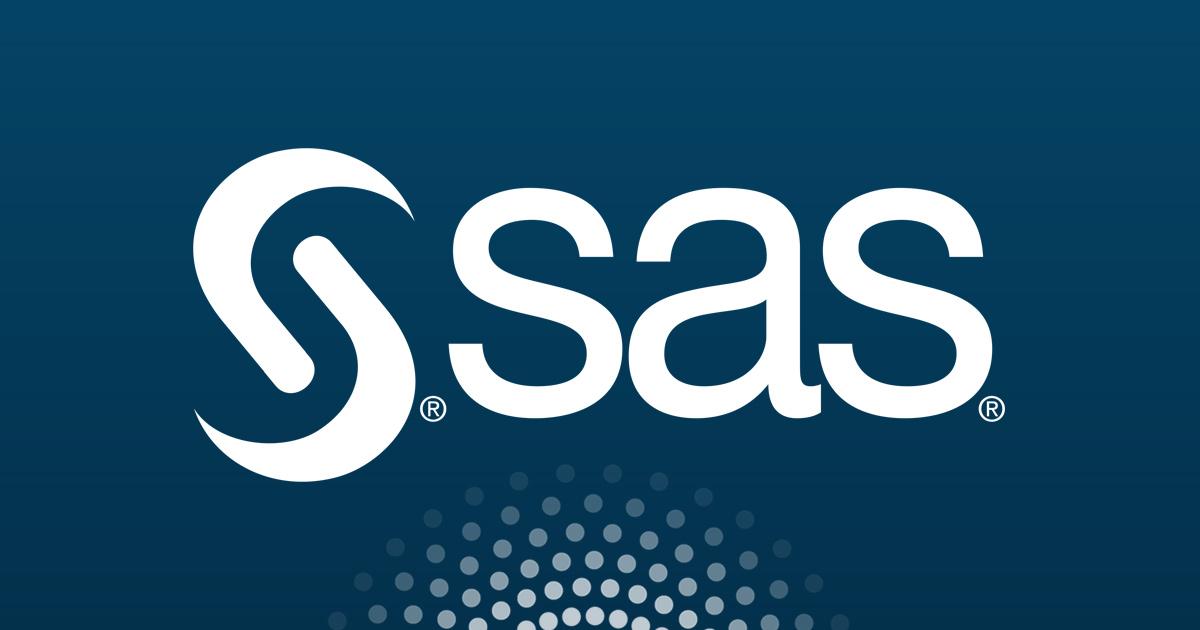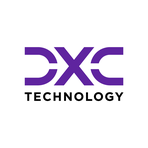The Dawn of Agentic AI: SAS Leads the Charge in Ethical Decision-Making
May 9, 2025, 4:34 am

Location: United States, Washington, Seattle
Employees: 201-500
Founded date: 2016
Total raised: $187M
In the fast-paced world of technology, the future often feels like a race. The finish line? A seamless integration of artificial intelligence into everyday business operations. SAS, a leader in data analytics, is at the forefront of this evolution. Their latest innovation, agentic AI, promises to reshape how organizations make decisions. Imagine a world where machines not only assist but also autonomously decide, all while adhering to ethical standards. This is not science fiction; it’s the new reality.
SAS has unveiled its Intelligent Decisioning framework, built on the robust SAS Viya platform. This framework allows businesses to design, deploy, and scale AI agents that balance human oversight with machine autonomy. It’s like a well-tuned orchestra, where each instrument plays its part in harmony. The result? Decisions that are not only efficient but also transparent and accountable.
The concept of agentic AI revolves around three core pillars: decisioning, human and AI balance, and governance. Each pillar supports the structure of this innovative approach. First, decisioning combines deterministic analytics with the flexibility of large language models. This hybrid method ensures that AI agents deliver precise outcomes while adhering to necessary business rules. Think of it as a GPS that not only guides you but also considers traffic laws and road conditions.
Next, the balance between human and AI involvement is crucial. SAS empowers organizations to determine how much autonomy their AI agents should have. In routine tasks, AI can operate independently, while humans provide oversight and strategic direction. It’s a dance between man and machine, where each knows its role. This collaboration enhances efficiency without sacrificing ethical considerations.
Governance is the final pillar, ensuring that AI agents operate within ethical boundaries. SAS has embedded a governance framework that maintains data privacy and aligns with business values. It’s like a safety net, catching any potential missteps before they become major issues. In a world where trust in technology is paramount, this commitment to ethical AI is a game-changer.
As organizations navigate the complexities of AI, the demand for transparency and explainability grows. SAS recognizes this need and is taking steps to address it. The company’s commitment to ethical rigor sets it apart in a crowded marketplace. In a recent survey, over 60% of business leaders expressed interest in quantum AI, yet many cited barriers to adoption. SAS aims to bridge this gap, providing a clear roadmap for organizations to follow.
Quantum AI is the next frontier, combining the power of quantum computing with artificial intelligence. This technology promises to solve complex problems at unprecedented speeds. However, the path to adoption is fraught with challenges. High costs, a lack of understanding, and uncertainty about practical applications are significant hurdles. SAS is working to demystify quantum AI, making it accessible to businesses of all sizes.
Through pilot projects and collaborations with industry leaders, SAS is paving the way for quantum AI integration. Companies like D-Wave and IBM are partnering with SAS to explore hybrid solutions that leverage both quantum and classical computing. This collaboration is akin to a relay race, where each partner passes the baton to achieve a common goal.
SAS’s approach to quantum AI is not just theoretical. They are already tackling real-world problems, applying hybrid architectures to deliver tangible results. For instance, a major consumer goods company is collaborating with SAS on a proof of concept that utilizes quantum annealing for optimization. This hands-on experience is crucial for organizations looking to harness the power of quantum technologies.
The potential applications of quantum AI are vast. Industries such as life sciences, finance, and manufacturing stand to benefit significantly. Enhanced drug discovery, improved risk management, and optimized processes are just a few examples of what quantum AI can achieve. SAS is focused on these key sectors, ensuring that their innovations meet the specific needs of each industry.
As businesses grapple with the complexities of AI and quantum technologies, the need for skilled personnel becomes evident. A recent survey highlighted a lack of trained professionals as a critical barrier to adoption. SAS is addressing this challenge by providing educational resources and support to help organizations build their capabilities. It’s like planting seeds for future growth, ensuring that businesses are equipped to thrive in an AI-driven world.
The landscape of AI is evolving rapidly, and SAS is leading the charge. Their commitment to ethical decision-making and responsible innovation sets a high standard for the industry. As organizations look to the future, they must consider not only the capabilities of AI but also the ethical implications of its use. SAS’s agentic AI framework offers a blueprint for navigating this complex terrain.
In conclusion, the future of AI is bright, and SAS is at the helm. With their focus on agentic AI, they are transforming how organizations make decisions. By balancing human oversight with machine autonomy, SAS is creating a new paradigm for ethical AI. As businesses embrace this change, they will find themselves better equipped to navigate the challenges of tomorrow. The dawn of agentic AI is here, and it promises to reshape the business landscape for years to come.
SAS has unveiled its Intelligent Decisioning framework, built on the robust SAS Viya platform. This framework allows businesses to design, deploy, and scale AI agents that balance human oversight with machine autonomy. It’s like a well-tuned orchestra, where each instrument plays its part in harmony. The result? Decisions that are not only efficient but also transparent and accountable.
The concept of agentic AI revolves around three core pillars: decisioning, human and AI balance, and governance. Each pillar supports the structure of this innovative approach. First, decisioning combines deterministic analytics with the flexibility of large language models. This hybrid method ensures that AI agents deliver precise outcomes while adhering to necessary business rules. Think of it as a GPS that not only guides you but also considers traffic laws and road conditions.
Next, the balance between human and AI involvement is crucial. SAS empowers organizations to determine how much autonomy their AI agents should have. In routine tasks, AI can operate independently, while humans provide oversight and strategic direction. It’s a dance between man and machine, where each knows its role. This collaboration enhances efficiency without sacrificing ethical considerations.
Governance is the final pillar, ensuring that AI agents operate within ethical boundaries. SAS has embedded a governance framework that maintains data privacy and aligns with business values. It’s like a safety net, catching any potential missteps before they become major issues. In a world where trust in technology is paramount, this commitment to ethical AI is a game-changer.
As organizations navigate the complexities of AI, the demand for transparency and explainability grows. SAS recognizes this need and is taking steps to address it. The company’s commitment to ethical rigor sets it apart in a crowded marketplace. In a recent survey, over 60% of business leaders expressed interest in quantum AI, yet many cited barriers to adoption. SAS aims to bridge this gap, providing a clear roadmap for organizations to follow.
Quantum AI is the next frontier, combining the power of quantum computing with artificial intelligence. This technology promises to solve complex problems at unprecedented speeds. However, the path to adoption is fraught with challenges. High costs, a lack of understanding, and uncertainty about practical applications are significant hurdles. SAS is working to demystify quantum AI, making it accessible to businesses of all sizes.
Through pilot projects and collaborations with industry leaders, SAS is paving the way for quantum AI integration. Companies like D-Wave and IBM are partnering with SAS to explore hybrid solutions that leverage both quantum and classical computing. This collaboration is akin to a relay race, where each partner passes the baton to achieve a common goal.
SAS’s approach to quantum AI is not just theoretical. They are already tackling real-world problems, applying hybrid architectures to deliver tangible results. For instance, a major consumer goods company is collaborating with SAS on a proof of concept that utilizes quantum annealing for optimization. This hands-on experience is crucial for organizations looking to harness the power of quantum technologies.
The potential applications of quantum AI are vast. Industries such as life sciences, finance, and manufacturing stand to benefit significantly. Enhanced drug discovery, improved risk management, and optimized processes are just a few examples of what quantum AI can achieve. SAS is focused on these key sectors, ensuring that their innovations meet the specific needs of each industry.
As businesses grapple with the complexities of AI and quantum technologies, the need for skilled personnel becomes evident. A recent survey highlighted a lack of trained professionals as a critical barrier to adoption. SAS is addressing this challenge by providing educational resources and support to help organizations build their capabilities. It’s like planting seeds for future growth, ensuring that businesses are equipped to thrive in an AI-driven world.
The landscape of AI is evolving rapidly, and SAS is leading the charge. Their commitment to ethical decision-making and responsible innovation sets a high standard for the industry. As organizations look to the future, they must consider not only the capabilities of AI but also the ethical implications of its use. SAS’s agentic AI framework offers a blueprint for navigating this complex terrain.
In conclusion, the future of AI is bright, and SAS is at the helm. With their focus on agentic AI, they are transforming how organizations make decisions. By balancing human oversight with machine autonomy, SAS is creating a new paradigm for ethical AI. As businesses embrace this change, they will find themselves better equipped to navigate the challenges of tomorrow. The dawn of agentic AI is here, and it promises to reshape the business landscape for years to come.


